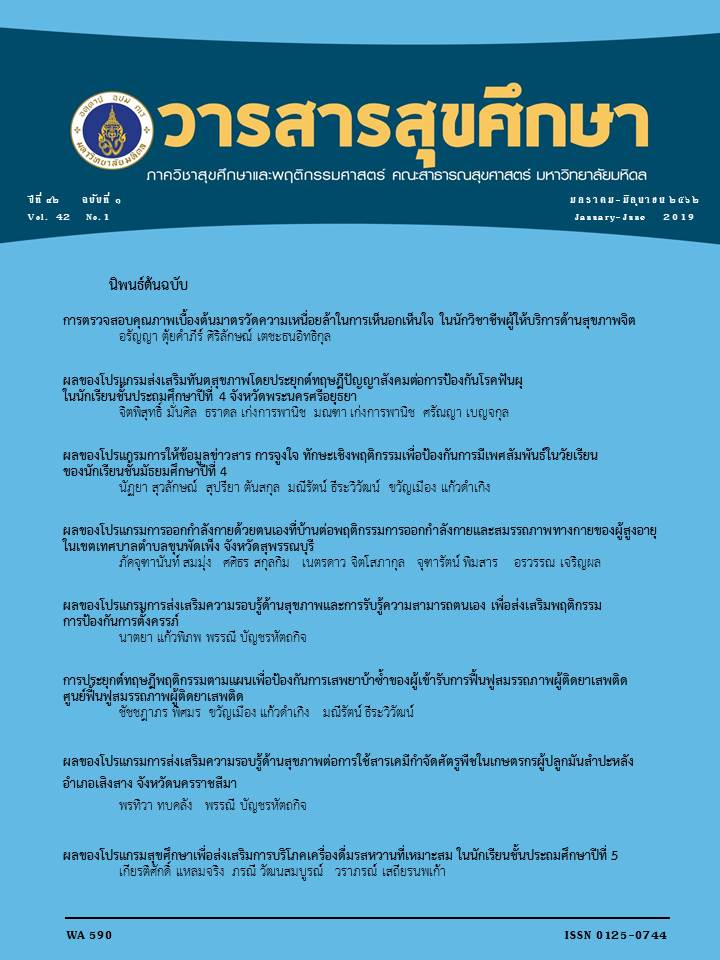Effects of an Information – Motivation – Behavioral Skills Program for Preventing Sexual Intercourse among Tenth Grade Students
Keywords:
IMB Model, Preventing Sexual Intercourse, Senior High School StudentsAbstract
This quasi-experimental research aimed to study the effects of information, motivation
and behavioral skills program for preventing sexual intercourse among the tenth grade
students. The study samples were 63 students, 31 of them were assigned into an experimental
group and the other 32 were in a comparison group. The experimental group was required to
attend a program based on IMB Model for 8 weeks, 1 session in a week and 50 minutes per
session. The comparison group received regular learning activities of the school. Data were
collected by self-administered questionnaire developed by the researcher, and were analytical
mean scores comparision within groups and between groups by Paired sample t-test and
Independent samples t-test. For data not normal distribution Wilcoxon Singed Rank test and
Mann Whitney U test were used.
Results of the study revealed that after the experiment, the experimental group had
significantly better knowledge about preventing sexual intercourse, positive attitude, social
motivation, decision making and problem solving skill, perceived self-efficacy and better
preventing sexual intercourse than the comparison group (p<0.05). Results of the study showed
the effectiveness of the program in enhancing the knowledge, attitude, social motivation,
decision making and problem solving skill, perceived self-efficacy and preventing sexual
intercourse of the students. Schools and related organizations could apply the program using
learning activities or to add in the health education or guidance in the school curriculum to
promote preventing sexual intercourse to students.



